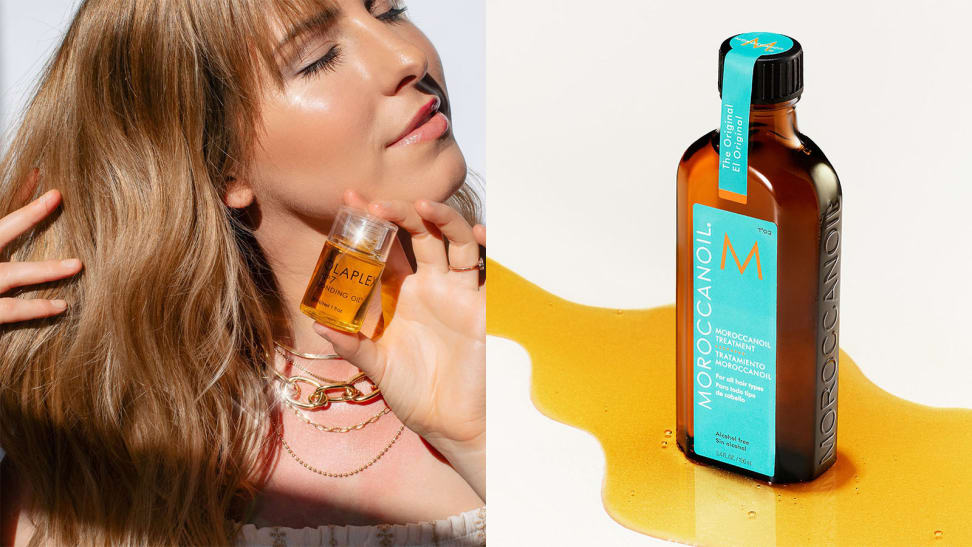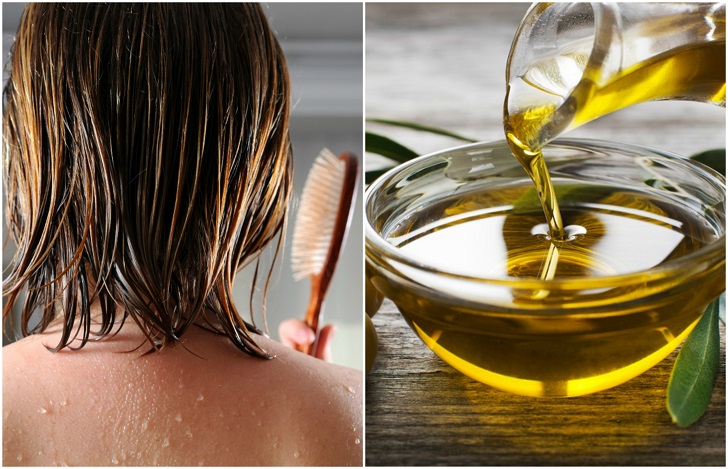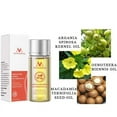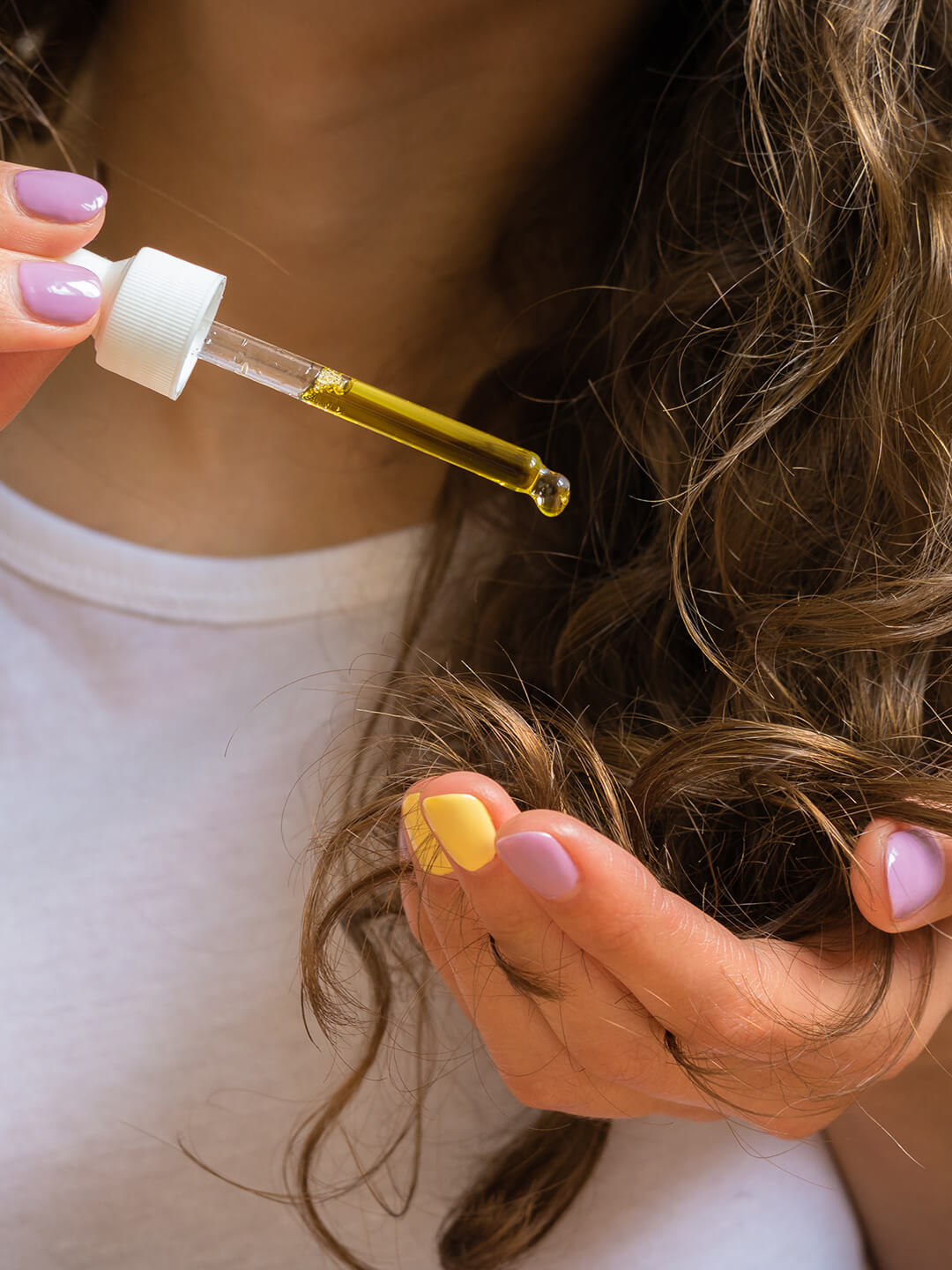7 Natural Oils That Transform Hair Health
Are you dreaming of luscious, healthy hair? At hairy.cartlab.web.id, we understand the desire for strong, vibrant locks. Many of us struggle with dryness, breakage, frizz, or slow growth. Fortunately, nature provides a wealth of solutions in the form of powerful natural oils. These oils aren’t just trendy; they’ve been used for centuries to nourish and revitalize hair, offering a gentle yet effective alternative to harsh chemical treatments. This comprehensive guide explores seven natural oils that can dramatically transform your hair health, revealing their unique benefits and how to incorporate them into your routine.
The quest for healthy hair often involves navigating a complex world of products and treatments. Understanding the power of natural oils can simplify this journey, offering a path to achieving your hair goals without the potential side effects of synthetic ingredients. From tackling dryness to stimulating growth, these oils offer a holistic approach to hair care, promoting both inner and outer beauty. By the end of this article, you’ll be equipped with the knowledge to choose the best oils for your specific hair type and concerns, paving the way for healthier, more radiant hair.
This article delves into the science behind these remarkable oils, explaining how their fatty acids, vitamins, and antioxidants work to improve hair texture, strength, and overall appearance. We’ll also provide practical tips on how to use these oils effectively, whether you prefer incorporating them into your existing hair care routine or creating your own customized hair masks. Get ready to unlock the secret to healthier, more beautiful hair with the power of nature.

1. Argan Oil: The Moroccan Miracle for Dry and Damaged Hair
Argan oil, sourced from the argan tree native to Morocco, is renowned for its exceptional moisturizing and restorative properties. Rich in vitamin E, fatty acids (including oleic and linoleic acid), and antioxidants, argan oil deeply penetrates the hair shaft, hydrating dry, brittle strands and reducing breakage. Its high concentration of antioxidants combats free radical damage, protecting your hair from environmental stressors like sun exposure and pollution. Argan oil is particularly beneficial for those with dry, damaged, or color-treated hair.
- Benefits: Deep hydration, reduces breakage, combats frizz, protects against environmental damage, adds shine.
- How to use: Apply a small amount to damp or dry hair, focusing on the ends. You can also add a few drops to your favorite conditioner or leave-in treatment. For a deep conditioning treatment, apply a generous amount to your hair, leave it on for 30 minutes to an hour, and then rinse thoroughly.
2. Coconut Oil: A Tropical Treat for All Hair Types
:max_bytes(150000):strip_icc()/Health-GettyImages-1331401698-aa5b816cb6ab4367a64f685b38dff058.jpg)
Coconut oil is a versatile powerhouse, suitable for virtually all hair types. Its medium-chain triglycerides (MCTs) easily penetrate the hair shaft, providing deep conditioning and moisture. Coconut oil is also known for its ability to reduce protein loss, which is crucial for maintaining hair strength and preventing breakage. Its antimicrobial properties can also help combat dandruff and scalp infections. Whether you have fine, thick, curly, or straight hair, coconut oil can be a valuable addition to your hair care routine. For those with naturally curly hair, consider exploring some natural curly hair ideas for kids to enhance your curls while using coconut oil.
- Benefits: Deep conditioning, reduces protein loss, strengthens hair, promotes shine, combats dandruff.
- How to use: Apply to damp or dry hair, focusing on the ends. Leave it on for at least 30 minutes, or overnight for a deep conditioning treatment, before rinsing thoroughly.
3. Jojoba Oil: A Natural Scalp Soother for Healthy Growth

Jojoba oil is unique in that its chemical structure closely resembles sebum, the natural oil produced by your scalp. This makes it an excellent choice for regulating sebum production, balancing oily scalps, and preventing dandruff. Jojoba oil also helps to moisturize the scalp and hair, promoting healthy hair growth. Its anti-inflammatory properties can soothe irritated scalps and reduce inflammation.
- Benefits: Balances sebum production, moisturizes scalp and hair, promotes healthy growth, soothes irritated scalp, reduces dandruff.
- How to use: Apply a small amount directly to the scalp and massage gently. You can also add a few drops to your shampoo or conditioner.
4. Castor Oil: A Stimulating Elixir for Hair Growth
:max_bytes(150000):strip_icc()/Health-GettyImages-CastorOilForHairGrowth-e8685dd8c9aa42faac7a1452c5efdfc0.jpg)
Castor oil is well-known for its potential to stimulate hair growth. Rich in ricinoleic acid, a type of fatty acid, castor oil is believed to improve blood circulation to the scalp, nourishing hair follicles and promoting hair growth. It’s also a potent moisturizer, leaving hair feeling soft and shiny. While more research is needed to confirm its effectiveness, many individuals report positive results in terms of hair growth and thickness. Remember to always patch test before using any new oil on your scalp.
- Benefits: Stimulates hair growth, improves blood circulation to the scalp, moisturizes hair, adds shine.
- How to use: Apply directly to the scalp and massage gently. Leave it on for at least 30 minutes, or overnight for a deep conditioning treatment, before rinsing thoroughly.
5. Olive Oil: A Mediterranean Marvel for Shine and Strength

Olive oil, a staple in the Mediterranean diet, is also a valuable asset for hair care. Rich in antioxidants and monounsaturated fatty acids, olive oil helps to strengthen hair, reduce breakage, and add shine. Its moisturizing properties help to combat dryness and frizz. Olive oil is a gentle option suitable for most hair types.
- Benefits: Moisturizes hair, strengthens hair, reduces breakage, adds shine, protects against damage.
- How to use: Apply to damp or dry hair, focusing on the ends. You can leave it on for a few minutes or longer for a deeper conditioning treatment.
6. Avocado Oil: A Nutrient-Rich Treat for Damaged Hair

Avocado oil is packed with vitamins A, D, and E, as well as healthy fats, making it a fantastic choice for repairing damaged hair. Its high concentration of vitamins and antioxidants helps to nourish and revitalize dry, brittle hair, reducing breakage and improving elasticity. Avocado oil is particularly beneficial for those with chemically treated or heat-styled hair.
- Benefits: Deeply moisturizes, repairs damaged hair, improves elasticity, adds shine, protects against damage.
- How to use: Apply to damp or dry hair, focusing on the ends. Leave it on for at least 30 minutes, or overnight for a deep conditioning treatment, before rinsing thoroughly.
7. Rosemary Oil: A Stimulating Oil for Hair Growth and Thickness

Rosemary oil is another oil that shows promise in stimulating hair growth. Its potent antioxidant and anti-inflammatory properties may help to improve scalp health and promote hair follicle activity. Some studies suggest that rosemary oil may be as effective as minoxidil, a common hair growth treatment. However, further research is needed to confirm these findings. When using essential oils like rosemary, always dilute them with a carrier oil like jojoba or coconut oil before applying them to your scalp. Looking for some inspiration for your next hairstyle? Check out these 7 hairstyles that will inspire your next look.
- Benefits: Stimulates hair growth, improves scalp health, reduces inflammation, adds shine.
- How to use: Dilute a few drops of rosemary essential oil with a carrier oil (like coconut or jojoba oil) and apply to the scalp. Massage gently and leave on for at least 30 minutes before rinsing.
Important Note: Before applying any new oil to your hair or scalp, perform a patch test on a small area of skin to check for any allergic reactions. If you experience any irritation, discontinue use. For specific hair concerns or conditions, consult with a dermatologist or trichologist.
Choosing the right natural oil for your hair type and concerns can significantly improve the overall health and appearance of your hair. While these oils offer numerous benefits, consistency is key. Incorporate these oils into your routine regularly to experience their full potential. Remember to always use high-quality, pure oils for optimal results. For a fun night out, try one of these 7 hairstyles that are perfect for a night out.
For further information and to explore a wider range of hair care products, visit 7 Natural Oils That Transform Hair Health. Remember, healthy hair starts with healthy habits!
External Authority Links:
- American Academy of Dermatology Association - For general information on hair care and scalp health.
- National Institutes of Health (NIH) - For research on the benefits of natural oils for hair.
- PubMed - For scientific studies on the efficacy of different oils for hair growth and health.






Comments